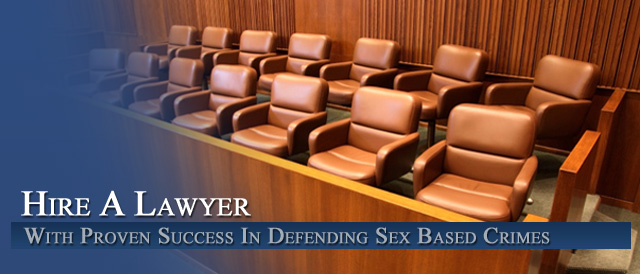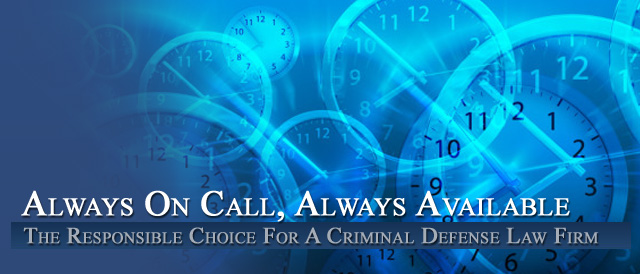




Colorado Criminal Sentencing Laws – Mandatory Sentencing – Concurrent v. Consecutive Sentences – How Do They Work?
by Colorado Criminal Defense Lawyer – Attorney for Colorado Sentencing Cases – H. Michael Steinberg
In Colorado – Colorado Criminal Sentencing Laws are enacted and then controlled by specific Colorado statutes – and sentences are normally governed by a matter of judicial discretion. That is judges decide the nature and length of the sentence imposed. This article is intended to explain when a judge can sentence a defendant concurrent to another sentence – that is running at the same time vs consecutive to a another sentence – meaning running after the completion of the first sentence.
Changes In Colorado Criminal Sentencing Laws In The Last 40 years
The history of the major changes to Colorado sentencing laws help to explain how we have arrived to where we are in 2013.
The following sections summarize Colorado’s sentencing law prior to 1979, and major changes to sentencing laws in 1979, 1985, 1989, and 1993.
Colorado Criminal Sentencing Laws Prior July 1, 1979
Convicted offenders sentenced for a crime committed prior to July 1, 1979, were sentenced under an “indeterminate” sentencing scheme. Under indeterminate sentencing, judges had discretion in sentencing an offender within a broad range set forth in law, depending on that offender’s criminal history and the circumstances of the particular crime for which the offender was convicted. This judicial discretion resulted in widely divergent sentences handed down to offenders convicted of similar crimes.
Colorado Criminal Sentencing Laws After 1979
In 1979, the Colorado General Assembly went to a presumptive or “determinate” sentencing scheme. Under this determinate sentencing schedule, presumptive ranges for each felony class were more narrowly defined. The new determinate sentencing ranges resulted in much less divergent sentences handed down for similar offenses. More narrowly defined presumptive ranges also resulted in longer minimum sentences and shorter maximum sentences.
Colorado Criminal Sentencing Laws By 1985
In 1985 the national focus was on “tough on crime” sentences as a result of the public’s perception that shorter sentences under Colorado’s relatively new determinate sentencing scheme were to blame for an increase in crime in Colorado
In 1985 the maximum sentence in the presumptive range was doubled for all felony classes. This doubling of the maximum sentence was the first step towards restoring the broad sentencing ranges of indeterminate sentencing in Colorado.
In 1989 the state of Colorado a new felony class, the class 6 felony which helped with minor felony crimes and resulted in shorter sentences in the presumptive range and prison sentences for certain crimes intended to lessen prison overcrowding. Also some class 4 felonies were reduced to class 5 felonies and some class 5 felonies became class 6 felonies.
Colorado Criminal Sentencing Laws in 1993
House Bill 93-1302 passed in 1993 reduced by 25 percent the maximum sentence in the presumptive range for class 3, 4, 5, and 6 felonies but it also created a special sentencing category of crimes presenting an extraordinary risk of harm to society.
Colorado Criminal Sentencing Laws – Mandatory Sentences and Consecutive vs Concurrent Sentencing
Unless a judge is restricted by a specific sentencing law – the court has inherent authority to impose concurrent or consecutive sentences.
In Colorado at least six statutes directly address the court’s authority to sentence consecutively or concurrently in specific situations.
Colorado Criminal Sentencing Laws – Multiple Counts and Compulsory Joinder
The compulsory joinder statute mandates concurrent sentences where multiple counts arise from the same transaction, the prosecution was aware of the charges at the time of filing, and the charges arise from the same episode and are supported by the same evidence.
However, where there are multiple victims, the court has the discretion to impose consecutive sentences.
Some Examples of Mandatory Consecutive Sentencing Laws In Colorado
Colorado Criminal Sentencing Laws – Two Or More Crimes Of Violence
Where a defendant is convicted of two or more separate crimes of violence arising out of the same incident, the sentences must be consecutive.
Colorado Criminal Sentencing Laws – Sexual Assaults
Anyone convicted of a class two sexual assault must receive a sentence consecutive to any other crime of violence sentence.
Colorado Criminal Sentencing Laws – Use of Semi Automatic Assault Weapons
CRS § 18-1.3-406(7) mandates an additional five-year consecutive sentence for an individual convicted of using a dangerous or semi-automatic assault weapon in the course of certain crimes.
Colorado Criminal Sentencing Laws – Escapes
CRS § 18-8-209 requires a sentence for escape and offense relating to custody to be consecutive to the sentence for which the offender was serving at the time of the offense, and
Colorado Criminal Sentencing Laws – Bond Jumping
CRS § 18-8-212(3) requires a consecutive sentence for bond jumping.
Colorado Criminal Sentencing Laws Felony Child Abuse
If a defendant is convicted of the class 2 or class 3 felony of child abuse under subparagraph (I) or (III) of paragraph (a) of subsection (7) of this section, the court shall sentence the defendant in accordance with section 18-1.3-401(8) (d).
……
18-1.3-401 (8)(a)
(D)(I) If the defendant is convicted of the class 2 or the class 3 felony of child abuse under section 18-6-401(7) (a) (I) or (7) (a) (III), the court shall be required to sentence the defendant to the department of corrections for a term of at least the midpoint in the presumptive range but not more than twice the maximum term authorized in the presumptive range for the punishment of that class felony.
In the absence of an order that a sentence is consecutive, it is concurrent by operation of law. 18-1.3-406(1)(a).
Colorado Criminal Sentencing Laws – Aggravating Circumstances
The presence of any one or more of the following extraordinary aggravating circumstances shall require the court, if it sentences the defendant to incarceration, to sentence the defendant to a term of at least the midpoint in the presumptive range but not more than twice the maximum term authorized in the presumptive range for the punishment of a felony:
Colorado Criminal Sentencing Laws – When The Judge Decides
When a consecutive sentence is not mandatory – judges have discretion to decide whether to give defendants who are convicted of separate crimes concurrent or consecutive sentences.. This option follows a situation when a defendant is convicted of (or pleads guilty to) multiple offenses in the same case
or
when the defendant is already serving time for a conviction, but is later tried for another crime.
Colorado Sentencing Laws – Multiple Offenses – Discretionary Concurrent Or Consecutive Sentences?
When a person is convicted of multiple offenses, the judge must impose sentence for each offense. The judge may require the sentences to be served concurrently, meaning at the same time, or consecutively, one after the other.
Factors Taken Into Consideration by Sentencing Judge
Same Conduct – Did the offenses arise from the same conduct?
Concurrent sentences are typically imposed on offenses arising from the same incident, where the defendant’s actions violate multiple statutes.
Separate Crimes – Did the defendant intend to commit separate crimes?
Previously Imposed Sentence? – Was the defendant previously sentenced, in any court, to a sentence not yet completed? If she was on probation for another crime — an unrelated crime, consecutive sentences are likely.
Same Victim? – Were multiple incidents committed against the same victim?
If there are repeated acts over a period of time targeting the same victim – consecutive sentences are likely.
More On Colorado Concurrent and Consecutive Sentences
Concurrent sentences. When sentences run concurrently, defendants serve all the sentences at the same time.
Consecutive sentences. When sentences run consecutively, defendants have to finish serving the sentence for one offense before they start serving the sentence for any other offense.
When a defendant is convicted of more than one very serious felony offense that carry lengthy prison terms, a judges decision to run the sentences consecutively or concurrently is critically important!
Judges generally look at the same factors that are used when deciding on the severity of a sentence (a defendant’s past record – impact of the crime – violenct crime versus non-violent).
For an article on Colorado sentencing decision – CLICK HERE ( article addresses what judges consider — mitigating and aggravating factors — when imposing sentences.)
Colorado Criminal Sentencing Laws – Mitigating and Aggravating Circumstances
At a sentencing hearing an experienced Colorado Criminal Defense Lawyer will bring to a judge’s attention an infinite number of factual circumstances. If presented persuasively and if the judge has discretion and is favorably disposed, these factors may well move the judge to impose a lighter sentence.
Mitigating Factors
•The offender has little or no history of criminal conduct.
•The offender was an accessory (helped the main offender) to the crime but was not the main actor.
•The offender committed the crime when under great personal stress, for example, the offender had lost a job, rent was due, and had just been in a car wreck.
•No one was hurt, and the crime was committed in a manner that was unlikely to have hurt anyone.
Colorado Criminal Sentencing Laws – The Five Special Sentencing Categories:
• crimes with extraordinary mitigating or aggravating circumstances;
• crimes of violence;
• crimes with extraordinary aggravating circumstances;
• crimes with sentence-enhancing circumstances;
and
• crimes presenting an extraordinary risk of harm to society.
Extraordinary Mitigating or Aggravating Circumstances (Section 18-1.3-401 (6), C.R.S.)
The court may impose a sentence that is lesser or greater than those in the presumptive range when the court finds that extraordinary mitigating or aggravating circumstances are present. Aggravating or mitigating factors may be determined by the court based on evidence in the record at the sentencing hearing and information contained in the presentence investigation report. The court may not impose a sentence which is less than one-half of the minimum sentence in the presumptive range, and may not impose a sentence that is not more than twice the maximum in the presumptive range.
Colorado Sentencing Laws – Colorado Crimes of Violence (Section 18-1.3-406, C.R.S.)
Any offender convicted of a crime of violence must be sentenced to a prison term which is at least at the midpoint in the presumptive range but not more than twice the maximum term. The following offenses which are committed, conspired to be committed, or attempted to be committed are specified in statute as crimes of violence when a person:
(a) used, or possessed and threatened the use of, a deadly weapon;
or
(b) caused serious bodily injury or death. These crimes of violence are contained within the following special sentencing categories: crimes with extraordinary aggravating circumstances and crimes presenting an extraordinary risk of harm to society:
• a crime against an at-risk adult or at-risk juvenile;
• murder;
• first or second degree assault;
• kidnapping;
• a sexual offense;
• aggravated robbery;
• first degree arson;
• first or second degree burglary;
• escape;
• criminal extortion; or
• any unlawful sexual offense in which the defendant caused bodily injury to the victim or in which the defendant used threat, intimidation, or force against the victim
Extraordinary Aggravating Circumstances (Section 18-1.3-401 (8), C.R.S.)
An offender convicted of a crime with extraordinary aggravating circumstances must be sentenced to a term of at least the midpoint in the presumptive range but not more than twice the maximum term. Offenders committing offenses under the following scenarios are charged with a crime which has extraordinary aggravating circumstances:
• the defendant is convicted of a Section 18-1.3-406, C.R.S., crime of violence;
• the defendant was on parole for another felony at the time he or she committed the felony offense;
• the defendant was on probation or was on bond while awaiting sentencing following revocation of probation for another felony when he or she committed the felony offense;
• the defendant was under confinement, in prison, or in any correctional institution as a convicted felon, or an escapee from any correctional institution for another felony when he or she committed the felony offense;
• the defendant was on appeal bond when he or she committed the felony offense following a conviction for a previous felony;
or
• the defendant is less than 18 years of age and, at the time he or she committed the offense, was on probation for or on bond while awaiting sentencing following revocation of probation for another offense that would have been a felony if committed by an adult.
Sentence-Enhancing Circumstances (Section 18-1.3-401 (9), C.R.S.)
Offenders convicted of a crime with sentence-enhancing circumstances are required to serve a sentence which is at least the minimum in the presumptive range but not more than twice the maximum in the presumptive range. Following are sentence-enhancing circumstances:
• the defendant was charged with or was on bond for a previous felony (or for a delinquent act that would have constituted a felony if committed by an adult) when he or she committed the felony (or delinquent act) and the defendant was subsequently convicted of the felony (or delinquent act);
• when the defendant committed the felony, he or she was on bond for having pled guilty to a lesser offense when the original offense charged was a felony;
• the defendant was under a deferred judgement and sentence for another felony when he or she committed the felony;
• the defendant is less than 18 years of age and, at the time he or she committed the felony, was on bond for having pled guilty to a lesser offense when the original offense charged was an offense that would have constituted a felony if committed by an adult;
• the defendant is less than 18 years of age and, when he or she committed the felony, was under a deferred judgement and sentence for another offense that would have constituted a felony if committed by an adult;
or
• when the defendant committed the felony, he or she was on parole for having been adjudicated a delinquent child for an offense which would constitute a felony if committed by an adult.
Crimes Presenting an Extraordinary Risk of Harm to Society (Section 18-1.3-401 (10), C.R.S.)
Sentences for offenders convicted of crimes presenting an extraordinary risk of harm to society are increased as follows:
• the maximum sentence in the presumptive range is increased by four years for class 3 felonies;
• the maximum sentence in the presumptive range is increased by two years for class 4 felonies;
• the maximum sentence in the presumptive range is increased by one year for class 5 felonies;
• the maximum sentence in the presumptive range is increased by six months for class 6 felonies; and
• the maximum sentence for misdemeanors is increased by six months.
Felony offenses which present an extraordinary risk of harm to society include the following:
• aggravated robbery;
• child abuse;
• unlawful distribution, manufacturing, dispensing, sale, or possession of a controlled substance with the intent to sell, distribute, manufacture, or dispense;
• any Section 18-1.3-406, C.R.S., crime of violence (see page 6 for a listing of these crimes);
• stalking;
and
• sale or distribution of materials to manufacture controlled substances.
Misdemeanor crimes which present an extraordinary risk of harm to society include the following (Section 18-1.3-501 (3), C.R.S.):
• third degree assault;
• class 1 misdemeanor sexual assault where the victim is at least 15 years old but less than 17 years old and the actor is at least ten years older than the victim and not the victim’s spouse;
• class 1 misdemeanor unlawful sexual contact;
• knowing or reckless child abuse resulting in injury other than serious bodily injury;
• violation of a protection order (second and subsequent offenses):
• class 1 misdemeanor failure to register as a sex offender.
Colorado Criminal Sentencing Laws – Habitual Criminal Laws
Sentencing for habitual offenders bypasses the presumptive sentencing ranges and requires judges to sentence habitual offenders to a determinate sentence that is significantly higher than the maximum in the felony class presumptive ranges.
Since 1979, the habitual offender statute has evolved from two levels of habitual offenders — the “little habitual” and the “big habitual” — to four levels of habitual offenders today: the “little habitual;” the “big habitual;” the “bigger habitual;” and the “three strikes you’re out” habitual.
Colorado Criminal Sentencing Laws -The “little habitual.”
Offenders convicted of a class 1, 2, 3, 4, or 5 felony who, within ten years of the date of the commission of the offense, have twice previously been convicted of a felony in Colorado, another state, or in federal court are adjudicated habitual offenders under the little habitual statute. The sentencing court is required to sentence such offenders to a term of imprisonment which is three times the maximum of the presumptive range for the felony class for which the person is convicted. The General Assembly chose not to apply the little habitual to class 6 felonies.
Colorado Criminal Sentencing Laws – The “big habitual.”
Offenders convicted of a fourth felony, regardless of the felony class, in Colorado, another state, or in federal court are adjudicated habitual offenders under the big habitual statute. The sentencing court is required to sentence such offenders to a term of imprisonment which is four times the maximum in the presumptive range for the class of felony for which the person is convicted.
Colorado Criminal Sentencing Laws – The “bigger habitual.”
Any offender convicted and sentenced under the big habitual statute, who is subsequently convicted of a felony which is a crime of violence as defined by Section 18-1.3-406, C.R.S., is adjudicated an habitual offender under the bigger habitual statute.
Offenders convicted of the bigger habitual are to be sentenced to a term of life imprisonment.
Offenders sentenced to life imprisonment under this provision are ineligible for parole until serving at least 40 calendar years.
Colorado Criminal Sentencing Laws – The “three strikes you’re out” habitual.
This level of habitual offender applies to offenders convicted of a third class 1, 2, or 3 felony which is a crime of violence as defined in Section 18-1.3- 406, C.R.S. Such offenders are to be adjudicated an habitual offender and are to be sentenced to a term of life imprisonment. Offenders sentenced under the three strikes provisions are ineligible for parole until serving at least 40 calendar years.
Please call our law firm if you have questions about ..
Colorado Criminal Sentencing Laws
H. Michael Steinberg has been a Colorado criminal law specialist attorney for 40 years (as of 2012). For the First 13 years of his career, he was an Arapahoe – Douglas County District Attorney Senior prosecutor. In 1999 he formed his own law firm for the defense of Colorado criminal cases.
In addition to handling tens of thousands of cases in the trial courts of Colorado, he has written hundreds of articles regarding the practice of Colorado criminal law and frequently provides legal analysis on radio and television, appearing on the Fox News Channel, CNN and Various National and Local Newspapers and Radio Stations. Please call him at your convenience at 720-220-2277
If you have questions about Colorado Criminal Sentencing Laws in the Denver metropolitan area and throughout Colorado, attorney H. Michael Steinberg will be pleased to answer those questions and to provides quality legal representation to those charged in Colorado adult and juvenile criminal matters.
In the Denver metropolitan area and throughout Colorado, attorney H. Michael Steinberg provides quality legal representation to those charged in Colorado adult and juvenile criminal matters…. as regards Colorado Criminal Sentencing Laws.
Other Articles of Interest:
- Colorado’s Sex Crimes – Offender Sentencing, – Mandatory Sentencing for Violent Crimes (18-1.3-406)
- Can I Appeal My Sentence In Colorado? When And On What Grounds?
- Colorado Criminal Sex Crimes Law – Understanding How a Charge of Sexual Exploitation Can Turn Into A Life Sentence – The Sexually Violent Predator
- Colorado Sex Crimes Law – Analysis of Sexual Exploitation Cases– How These Cases Can Quickly Turn Into Life Sentences
- Colorado Criminal Sex Crimes Law – Sexual assault, in violation of section 18-3-402, C.R.S.;













